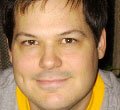
Oral Roberts was going to be in Tulsa on the Oral Roberts University campus he founded almost 46 years ago. He was invited by Board Chair Mart Green to be part of the school’s homecoming festivities that included a public blessing of newly appointed president Dr. Mark Rutland and the rededication of ORU’s famous prayer tower and its renovated prayer room.
Charisma asked me to conduct an interview with Roberts who hasn’t gone on the public record in his former hometown in at least five years. In a small campus TV studio, I was joined by a Tulsa World reporter along with Green and Rutland who flanked the 91-year old evangelist.
I can honestly say interviewing Roberts was one of the most surreal (and at certain moments, difficult) experiences of my professional career as a writer. But once I stepped away, I was certainly glad I had been part of the historic conversation.
The next day, the Tulsa World posted its story online and comments were quickly piling up-some praising ORU’s founder for his body of ministry and others taking pot shots at the Roberts family (mostly based on legal allegations of impropriety aimed at Oral’s son and former ORU president Richard Roberts).
It was just a small taste of the vitriol that was being spewed about 12-15 months ago when a lawsuit against the younger Roberts was big news here in Tulsa. And sadly, many people felt the need to spit on Oral Roberts’ legacy in the process.
I’ve lived in the Tulsa area most of my life-almost 30 years to be a bit more specific. I live about eight miles from ORU and have graced the campus countless times by attending concerts, conferences, church services, sporting events and business meetings.
Even though I’m a graduate of the University of Tulsa-which happens to be a fierce cross-town sports rival most notably in men’s basketball-I’ve always had a healthy respect for ORU and the kind of graduates it produces. Some of these graduates are good friends of mine. Some of the school’s administration and staff are also close acquaintances.
So when I see people in my hometown (or anyone else for that matter) attacking a godly man like Oral Roberts and the university he founded, I can’t help but wonder if those people understand what they’re saying. Maybe they haven’t taken the time to examine the fruit of ORU or the fruit of Roberts’ lifelong ministry as a worldwide evangelist of the Gospel.
That’s what Roberts believes the Green family did when they made the decision to financially rescue ORU from its staggering debt during the fall of 2007.
“I think they went in the kitchen and talked,” Roberts told me. “And they saw the fruit of the school.”
I wonder what specific fruit the Greens saw upon inspection of Roberts’ legacy? Was it the impressive list of notable alumni that have used ORU as a springboard to great achievement?
Perhaps they saw names like Ron Luce (class of 1983), founder of Teen Mania Ministries and one of the most influential voices to America’s youth for the past three decades.
Maybe they heard about Jim Stovall (class of 1981), the Emmy-Award winning co-founder and president of the Narrative Television Network, which makes movies and television accessible to 13 million blind and visually impaired Americans. Stovall is also the author of many popular books including The Ultimate Gift (which was made into a 2006 feature film).
How about Michele Bachmann (class of 1986) who after serving six years in the Minnesota State Senate was elected to the U.S. House of Representatives in 2006 and continues to champion socially-conservative causes?
Clifton Taulbert (class of 1971) might have caught their eyes. Taulbert, a noted speaker and author, wrote the best-selling novel (later made into a feature film) Once Upon A Time When We Were Colored and the Pulitzer Prize nominated Eight Habits of the Heart.
And those are just a handful of the “famous” pieces of fruit that grew from Oral Roberts’ influential tree. There are thousands of other ORU alumni who are making a difference in business, medicine, humanitarian work, ministry and every imaginable walk of life.
When I told my mom I was going to write this blog, she said something very profound. To paraphrase her words: “If everyone who has been saved or healed at one of his meetings or has been impacted by ORU would stand up and speak out, it would drown out all of the voices that want to destroy his legacy.”
Roberts said some pretty wise things himself when I asked what he thought would be his legacy as a minister of the Gospel.
“I don’t think I will decide that,” he said. “I think that my friends will decide that.
And whatever they decide will be the legacy. I don’t think the last word is in yet.”
William James, a famous 19th Century philosopher and author once said, “The greatest use of life is to spend it for something that will outlast it.”
The Old Testament recorded a similar thought a few thousand years earlier: “For ask the previous generation and pay attention to what their fathers discovered, since we were [born only] yesterday and know nothing. Our days on earth are but a shadow” (Job 8:8-9, Holman Christian Standard Bible).
Maybe there’s something in that statement for all of us. After all, we are all going to leave a legacy behind-whether we’re the founder of a university, the writer of a blog, a housewife or a working professional who puts in an honest 40 hours a week at the job.
If we would all spend more time nurturing our own legacies instead of looking for worms in someone else’s fruit, there’s no telling the difference we could make in this hurting and dying world.
Chad Bonham is a freelance author, journalist and television and documentary producer from Broken Arrow, Okla.














































